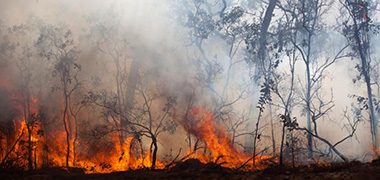
This role has a moderate level of AI exposure. AI can enhance efficiency for some tasks, but this job still relies on human skills and decision-making.
Explore all careersAn Earth Scientist studies the Earth's physical properties and processes, analysing data and collaborating with others to address environmental challenges.
Get qualified to work as an Earth Scientist with a course recognised across Australia. Speak to a training provider to learn more.


Browse occupations related to Earth Scientist



If you're interested in pursuing a career as an Earth Scientist, Launceston offers a valuable opportunity with accessible Earth Scientist courses in Launceston. The region is home to the renowned University of Tasmania, which provides a comprehensive Bachelor of Science (Earth Science) programme. This course equips you with the essential skills and knowledge needed to thrive in various Earth Science roles, ensuring you're well-prepared for the challenges of the field.
Studying Earth Science opens doors to several fascinating job roles. In Launceston, graduates can explore careers as a Geophysicist, Hydrologist, or even a Geologist. Each of these positions not only contributes to our understanding of the planet but also plays a crucial role in addressing environmental challenges, making them both rewarding and significant.
In addition to traditional Earth Science paths, Launceston’s educational offerings extend to specialisations such as Hydrogeologist and Geochemist. These roles delve deeper into niche areas of study, applying scientific principles to real-world problems such as groundwater management and mineral exploration. Choosing to specialise could further enhance your career prospects in the dynamic field of Earth Sciences.
The Earth Scientist courses available in Launceston not only provide academic insights but also connect students to various fields of study, including related Science courses and specific Earth Science courses. These connections can be instrumental when considering various pathways in your career, helping you broaden your skill set and network within the industry.
Finally, considering a role as a Palaeontologist, Geoscientist, or Physical Scientist can also stem from an Earth Science background. Additionally, if you're tech-savvy, a career as a GIS Specialist might be right up your alley. With a plethora of options at your disposal, Launceston stands out as a prime location to kickstart your journey in Earth Sciences. Consider enrolling in an Earth Scientist course in Launceston today!